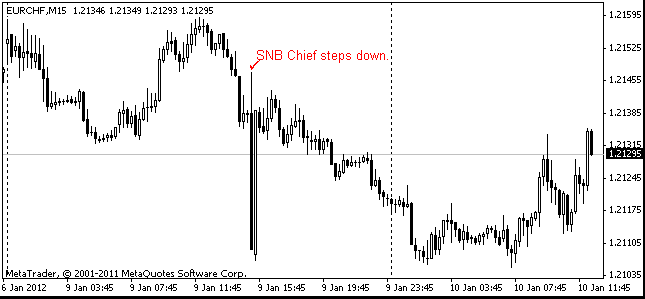EUR/usd
As was widely forecasted by skeptics, including us – the government of Cyprus didn't come up to the final decision on the bank deposit levy. None of the parliamentarians supported the initial plan: 36 voted against and 19 abstained. And though many believed that the shift of the burden to larger deposits would be treated positively, so far traders have preferred to sell the single currency. Yesterday eurusd hit a fresh low since last November. The stock markets from time to time stumble over sales – the current bounce off the highs looks quite moderate from the historic point of view. Cyprus and the ten-year anniversary of the invasion of Iraq are so widely highlighted in the press that the frontpages simply don't have space for publications about the Fed's decision scheduled for today. Of course, we shouldn't expect any changes in the policy, however the accompanying commentary is worth paying attention to. The thing is that since the beginning of the year the fomc's members have frequently pointed out that the Fed's policy increases the risks of overheating of some markets. Some said that the current programme to purchase $45bln worth of treasuries to the CB's balance sheets each month might be brought to a close by the end of the year. Others called to discuss the rollback of the current incentives. This way or another it is clear that the Fed gives rise to much more risks of the bubble formation in the asset market than other countries' policies. The US indices have approached the highs of 2007 (DIJA even was above them for a while), while other major benchmarks still have to travel a long way in this direction. So, Bernanke and Co., quite likely, may repeat the strategy of Greenspan who is blamed for keeping rates too low for too long. Enough of politics. The single currency keeps going down, though the initial trend is already under question. Now depreciation has somewhat slowed down.

GBP/USD
Today we'll get stats on the British labour market. The Claimant Count rate was decreasing for the previous three months. Gradually over the year it fell from 4.9% down to 4.7% and the unemployment level shrank even more visibly, to 7.8% against 8.3% a year ago. It is remarkable that despite this the economy as well as the retail activity don't demonstrate any significant growth.

USD/JPY
Weakness of the euro and depreciation of the EU and US stock exchanges impede growth of usdjpy. It remains as close to 95.0 as at the beginning of the week. The market's concerns about the extra meeting of the BOJ haven't been realized yet. Most likely, real action can be expected only after the next meeting of the bank on April 5. Before that the pair is likely to fluctuate between 94.50 and 96.50.

EUR/CHF
The SNB seems to be one of the few buyers of the single currency in the recent days. EURCHF dropped below 1.2170 at the beginning of the week – it hadn't been there for about a month. Just as then it got decent support at those levels. Eventually, growth of EURCHF (quite likely to 1.24) will support EURUSD, which would be much in favour of the latter.
